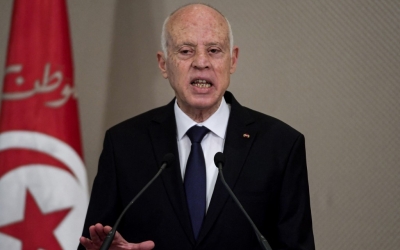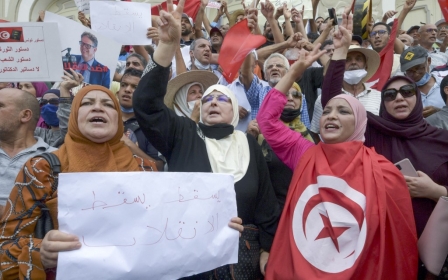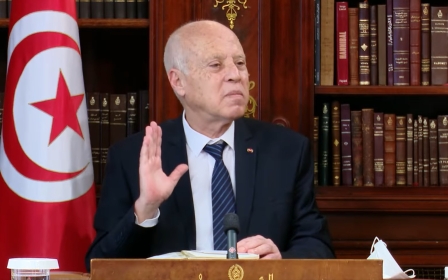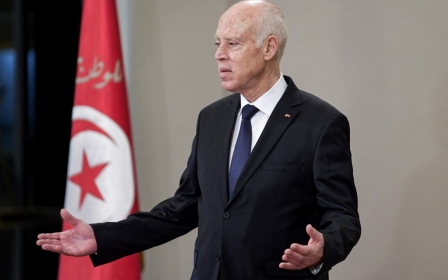Tunisia coup: Four parties and major union UGTT condemn Saied’s seizure of power
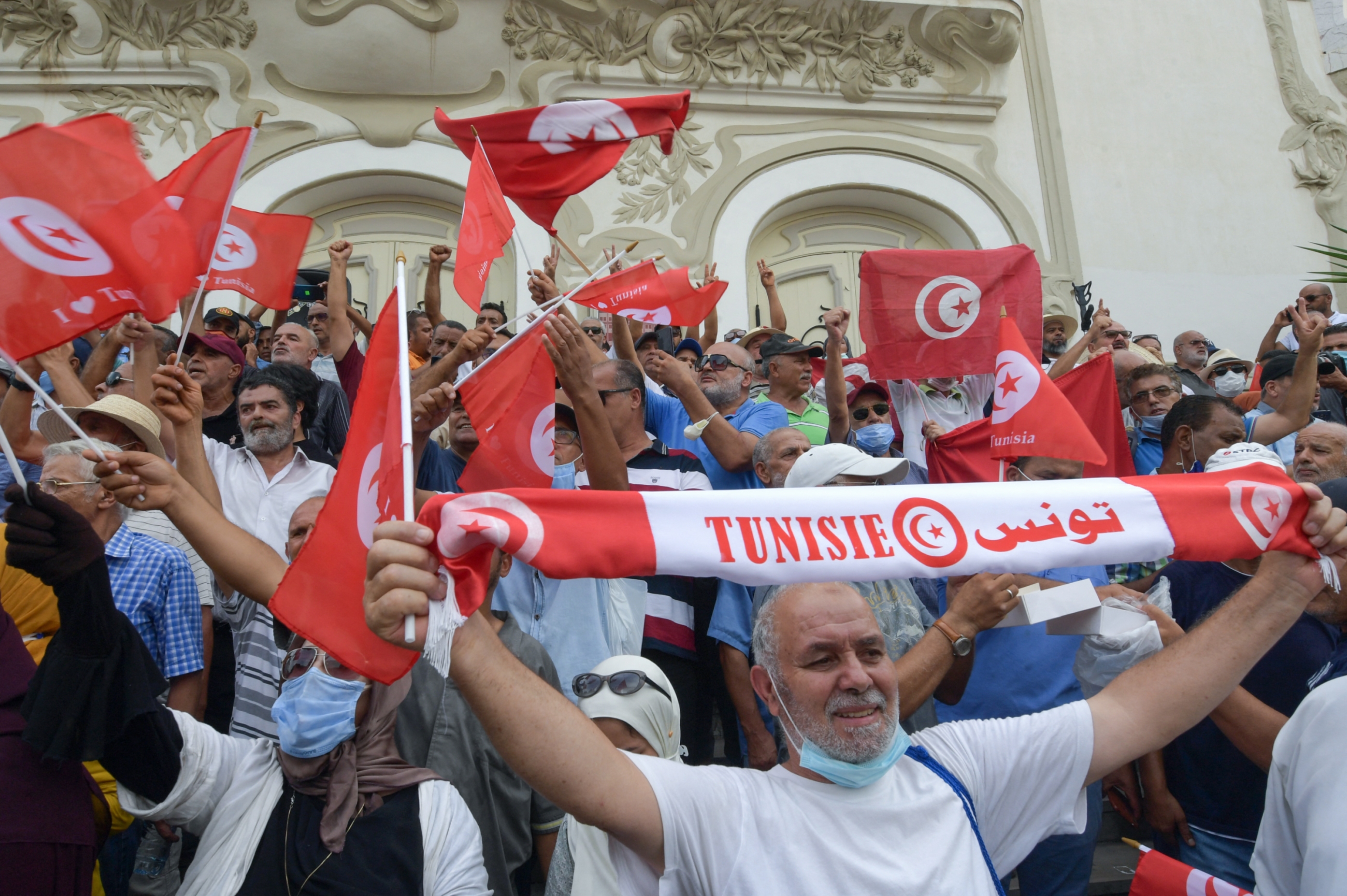
Four Tunisian political parties and the country's largest trade union on Thursday expressed deep discontent with President Kais Saied's move to adopt measures that would effectively allow him to rule by decree.
Almost two months after taking control of legislative and executive power in what opponents have labelled a coup, Saied on Wednesday announced exceptional measures that strengthen his powers at the expense of the prime minister's office and parliament.
The Democratic Current party (Attayar), Ettakatol (FDTL), the Republican Party (Al Jomhouri) and Afek Tounes said in a joint statement that Saied has lost his legitimacy and that his move enshrined an absolute power monopoly. They also called for an end to the coup.
"We consider the president has lost his legitimacy by violating the constitution.. and he will be responsible for all the possible repercussions of this dangerous step," the four parties said in the statement.
The president said on Wednesday that he would rule by decree and ignore parts of the constitution as he prepared to change the political system.
Anour Ben Kadour, a senior official in the powerful Tunisian General Labour Union (UGTT), said: "Tunisia is heading towards absolute, individual rule."
UGTT, a major force in Tunisian politics, is holding a meeting to formulate a position on Saied’s actions and is expected to issue a statement on Thursday.
Saied's new provisions were laid out in a series of decrees published in the Tunisian state's official gazette. One article stipulates that the government, previously under a prime minister who answered to parliament, would report to the president, who would appoint cabinet members and set its policy direction and basic decisions.
Political activists who have rejected Saied's moves have called for protests on Sunday along Habib Bourguiba Street in Tunis.
Street influence
Even though the four parties are not among the most powerful in the country, they do hold influence in the streets, especially the Democratic Current party, which was close to Saied prior to his power grab.
The president has held nearly total power since 25 July, when he sacked the prime minister, suspended parliament and assumed executive authority citing a national emergency. This new opposition increases pressure on him.
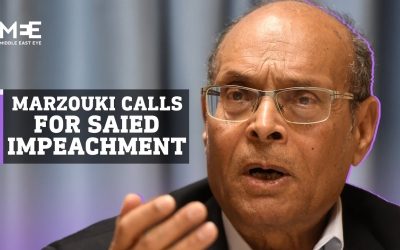
After years of economic stagnation, many Tunisians have backed the president’s move, seeing it as a step towards ousting a corrupt and unpopular political elite. However, his critics from across the spectrum say he is inexperienced and uncompromising.
On Saturday, hundreds of people took to the streets of central Tunis in opposition to Saied's power grab, which they accused of being unconstitutional.
Rached Ghannouchi, the leader of Tunisia's Muslim-democratic Ennahda party, the biggest party in Tunisia's parliament and the most vocal opponent of Saied's moves, said on Wednesday that the president’s declarations amounted to the cancellation of the constitution. Ennahda would not accept that, he said.
The presidency on Wednesday said parliament's activities would remain frozen, with members still stripped of their immunity from prosecution.
Middle East Eye delivers independent and unrivalled coverage and analysis of the Middle East, North Africa and beyond. To learn more about republishing this content and the associated fees, please fill out this form. More about MEE can be found here.


